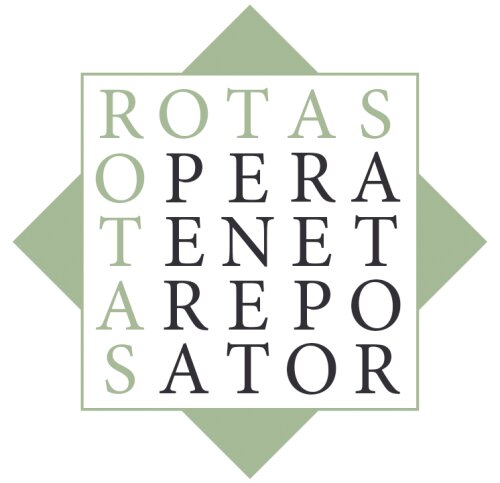Best Media and Entertainment Lawyers in Rome
Share your needs with us, get contacted by law firms.
Free. Takes 2 min.
List of the best lawyers in Rome, Italy
About Media and Entertainment Law in Rome, Italy
The vibrant city of Rome, Italy, has a rich and diverse culture, deeply rooted in historic art, cinema, music, and literature. The media and entertainment industry in Rome is a dynamic sector that includes film, television, music, publishing, digital media, advertising, and theater. Media and Entertainment law in Rome encompasses a broad range of legal issues that professionals might encounter in this creative field, such as intellectual property rights, contract negotiations, regulatory compliance, and artistic freedom. It integrates various legal domains including copyright law, trademark law, licensing, contract law, labor law, and digital media laws, providing a framework to ensure the protection and commercialization of creative works.
Why You May Need a Lawyer
Individuals and businesses may require legal assistance in the following situations:
- Intellectual Property Protection: Drafting and negotiating agreements to protect copyrights, trademarks, and patents.
- Contract Oversight: Reviewing and negotiating contracts for actors, musicians, managers, and studios to prevent disputes over terms and compensations.
- Media Compliance: Ensuring content complies with national broadcasting and publishing regulations.
- Dispute Resolution: Legal representation in case of infringement disputes or when illegal content deployment occurs.
- Advertising Regulations: Advising on legal guidelines for advertising and promotional activities.
- Talent Management: Guiding artists and agents on labor laws and contractual obligations.
Local Laws Overview
Rome follows the Italian legal framework, and key aspects relevant to Media and Entertainment include:
- Copyright Law: Governed by Law 633/1941, offering protection to original works from literature, music, art, architecture, and applied arts.
- Trademark Protection: Laws ensuring the protection of brands and logos integral to a company’s identity in media productions.
- Data Privacy: Compliance with the General Data Protection Regulation (GDPR) for handling personal data within media and digital platforms.
- Censorship and Morality Standards: Adherence to Italian certifications and ratings on content deemed appropriate for public dissemination.
- Broadcasting Regulations: Alignment with Agcom (the Italian Communications Authority) on content airing, ensuring competition fairness, and consumer protection.
Frequently Asked Questions
What is the role of a media and entertainment lawyer?
A media and entertainment lawyer provides guidance and representation in areas like intellectual property rights, contract negotiations, regulatory compliance, and dispute resolution to protect the interests of clients in the entertainment industry.
Do I need a lawyer for a small independent film project?
Yes, having legal assistance can be crucial for handling contracts, securing licenses, ensuring proper rights acquisition, and navigating regulatory compliance, even in independent projects.
How can I protect my creative work in Italy?
You can register your work for copyright protection and consider trademark registration for any distinctive marks. A lawyer can assist in drafting contracts that secure your rights and interests.
What should I know about GDPR as a digital content creator in Rome?
The General Data Protection Regulation (GDPR) requires strict management of personal data, ensuring it is collected lawfully and used transparently. Non-compliance can result in heavy fines.
Are there specific advertising laws I should be aware of in Rome?
Italian advertising laws prevent misleading commercials, impose truthfulness, and regulate claims concerning health, environment, and sensitive demographics.
Can foreign companies freely produce media in Rome, Italy?
Yes, but they must adhere to local laws, which often require collaborations with domestic partners and compliance with regulations from bodies like Agcom.
How can disputes in contracts be avoided?
Clear, detailed contracts drafted and reviewed with the help of a lawyer are vital in preventing disputes by ensuring all parties understand their rights and obligations.
What is the importance of obtaining rights for music in film productions?
Securing music rights is crucial to avoid legal disputes. This includes synchronization rights, performance rights, and reproduction rights for any music used.
How does Italian law protect against content piracy?
Italian law provides criminal penalties and civil remedies for content piracy and unauthorized distribution, with enforcement supported by EU-wide antipiracy efforts.
What recourse is available if my work is used without permission?
An infringement lawsuit can be filed for unauthorized use, potentially resulting in damages, injunctions, or settlements, guided effectively by an entertainment lawyer.
Additional Resources
Consider exploring these resources for further guidance:
- Italian Society of Authors and Publishers (SIAE): Manages rights and fees for authors and publishers.
- Ministry of Cultural Heritage and Activities and Tourism: Oversees cultural promotions and protections.
- Agcom (Authority for Communications Guarantees): Regulatory authority for communication industries.
- Italian Association of Entertainment Lawyers (AIGA): Offers resources and support for navigating legal issues in the entertainment sector.
Next Steps
If you require legal assistance, follow these steps:
- Research: Identify specific areas where you require legal help.
- Consultation: Contact a legal expert or firm specializing in media and entertainment law to discuss your situation.
- Documentation: Gather all relevant documents, including contracts, correspondence, licenses, and agreements.
- Legal Representation: Consider engaging an attorney to protect or assert your rights in any proceedings.
- Continued Education: Stay informed about the latest developments in media and entertainment law and how they may impact your work or business.
Lawzana helps you find the best lawyers and law firms in Rome through a curated and pre-screened list of qualified legal professionals. Our platform offers rankings and detailed profiles of attorneys and law firms, allowing you to compare based on practice areas, including Media and Entertainment, experience, and client feedback.
Each profile includes a description of the firm's areas of practice, client reviews, team members and partners, year of establishment, spoken languages, office locations, contact information, social media presence, and any published articles or resources. Most firms on our platform speak English and are experienced in both local and international legal matters.
Get a quote from top-rated law firms in Rome, Italy — quickly, securely, and without unnecessary hassle.
Disclaimer:
The information provided on this page is for general informational purposes only and does not constitute legal advice. While we strive to ensure the accuracy and relevance of the content, legal information may change over time, and interpretations of the law can vary. You should always consult with a qualified legal professional for advice specific to your situation.
We disclaim all liability for actions taken or not taken based on the content of this page. If you believe any information is incorrect or outdated, please contact us, and we will review and update it where appropriate.
















